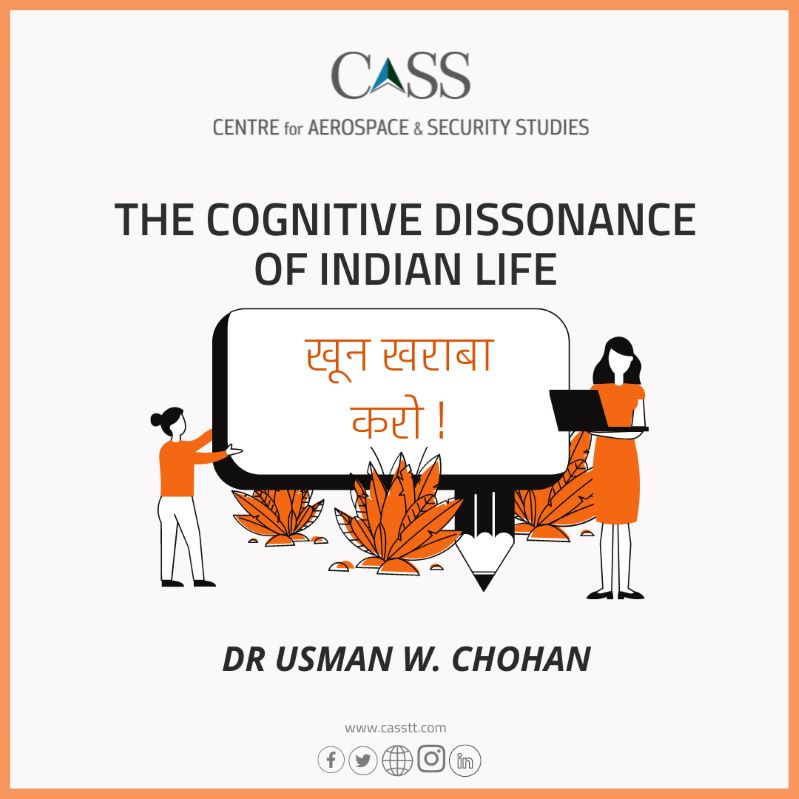At every sunrise, Indians wake up to the reality of an emergent superpower. At the same time, they wake up to the abject misery of a corrupt, backward, parochial, Third World nightmare. On one hand, they see a country confident and poised to challenge other world powers such as China. On the other hand, they are humiliated both by their dishonest, rabid government and by the weakness of their Air Force when it is decisively beaten by Pakistan’s, a country seven times smaller.
For its billion residents, India is at the very same time on top of the world and at the very bottom. While some of its citizens are manning leading international institutions such as Microsoft and Google, its teeming masses lack access to basic amenities such as toilets and safe drinking water. It contends with one narrative that it is a country of Katrina Kaifs, and with another narrative of the desperate, most grotesque poverty on earth.
This creates a problem that is known in the social psychology literature as cognitive dissonance: that there is a discord and contradiction between two different realities that the subject simultaneously perceives. As the theory’s pioneer, psychologist Leon Festinger put it, “human beings strive for internal psychological consistency to function mentally in the real world, [and] a person who experiences internal inconsistency tends to become psychologically uncomfortable and is motivated to reduce the cognitive dissonance, by making changes to justify the stressful behavior.”
The inability to reconcile two diametrically opposed ideas in the collective mind is now polarizing Indian society in manner unseen in its post-Independence history. How can it be a superpower and yet a Banana Republic? How can it aim to challenge a country like China when it cannot even challenge Pakistan?
The cognitive dissonance is worsened by the systemic self-deception that the Indian media is now propagating. Research from Microsoft shows that India has the worst fake news problem in world. Its self-deception is so blatant that it needs to raise its defeated and captured pilot, who upon the mercy of Pakistan was returned unharmed, as some kind of “hero”. The right-wing media connives to spin Pakistan’s gesture of peace as one of “pressure” or “weakness,” deluding the Indian public to let their government save its face.
As Pakistan extends its hand of peace, India wields a clenched fist, while its media turns a blind eye to the real causes of local disaffection: a permanent tyranny of half a million troops in Occupied Kashmir, and worsening economic inequality in India that benefits but a few and worsens the plight of the many. Record unemployment, particularly among India’s youth, is both a clear indicator of this adverse economic situation, as well as the cognitive dissonance that the Indian public must bear. On one hand, some young people are seeing substantial jumps in their incomes, and yet so many young people cannot even land their first job.
So which “truth” is true? Is India a poster-boy of military and industrial might, or a basket-case of rabid, faltering right-wing fundamentalism? There is an element of truth in both claims, but the Indian public will make its votes manifest in April/May 2019, and provide an indication of which narrative they grasp on to more tightly.
In order to sway the cognitive dissonance in their favor, the incumbent BJP had tried its best to downplay India’s economic failures and sought to draw attention to India’s supposed military strength. That gambit has backfired spectacularly, with the Pakistan Air Force successfully neutralizing Indian aggression, and providing ample proof of the PAF’s readiness and commitment to national defense.
The evidence of downed aircraft and a captured pilot have left little room for the BJP to reconcile the dissonance towards the pole of strength, and have left it in a bind by highlighting Indian failures of political leadership, military leadership, operational deficiencies, intelligence failures, and public manipulation.
For a mature government, such incidences might suggest that India might tune down its rhetoric and seek a conciliatory approach that matches that of Pakistan. But the BJP is by no means the representative of a mature polity, and may seek an even more aggressive gambit as the election nears. Yet this will only worsen the impact of the inherent tension that the Indian polity wrestles with, for it may risk dragging them down the path of open conflict, and thus wanton destruction.
Sadly, a full-blown war might provide the ultimate but disconcerting answer to the cognitive dissonance in Indian society; for as a destroyed country, ridden by both the physical and psychological damage of violence between two large and nuclear-armed neighbors, India may come to see that its superpower fantasies were always much further away than it had conjured up.
The writer is the Director for Economics and National Affairs at the Centre for Aerospace and Security Studies (CASS). He can be reached at [email protected]





